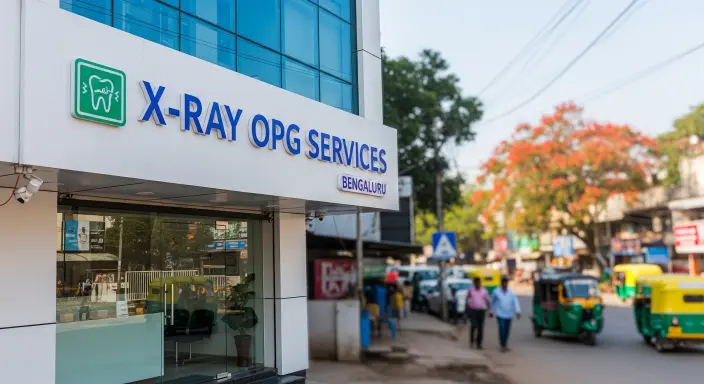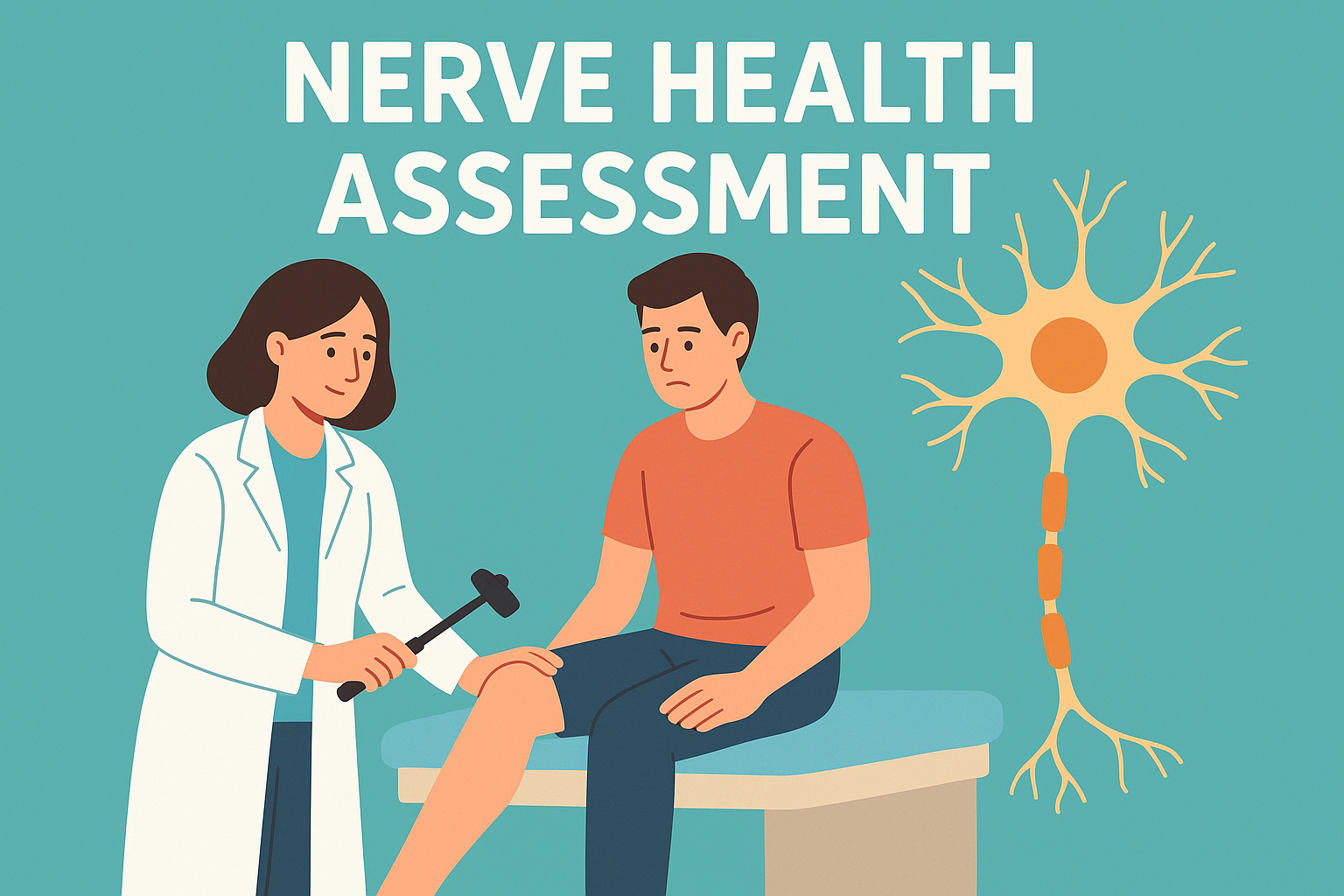
enquiry@ecotowndiagnostics.com
Send Your Mail 24/7 Support
Mon - Sat 6:30AM - 10:00PM
Sunday 6:30AM - 3:00PM
enquiry@ecotowndiagnostics.com
Send Your Mail 24/7 Support
Mon - Sat 6:30AM - 10:00PM
Sunday 6:30AM - 3:00PM

Nerve pain can feel like an invisible problem—sharp, burning, or tingling sensations that come and go without clear reason. For many, the search for answers begins after weeks or months of unexplained discomfort. This is where diagnostic tools like the Nerve Conduction Velocity (NCV) Test step in, helping doctors trace the root of the problem with precision.
If you’ve ever been told you might have a “pinched nerve,” or experience numbness and weakness, understanding how an NCV Test in Bangalore or your local city works can help demystify the process—and maybe even bring relief.
The Nerve Conduction Velocity (NCV) Test is a diagnostic procedure that evaluates how fast and effectively your nerves transmit electrical impulses. It’s often paired with an Electromyography (EMG) test, which measures muscle response to nerve stimulation.
In simpler terms, the NCV test helps doctors detect:
When patients search for an NCV Test in Bangalore, they’re usually referred by neurologists or orthopedists to confirm nerve-related conditions such as carpal tunnel syndrome, sciatica, or diabetic neuropathy.
Asha, a 38-year-old software engineer, began noticing occasional tingling in her right hand. At first, she blamed it on typing too much. But soon, her fingers felt weak, and sometimes she struggled to hold her coffee mug without shaking.
After a few weeks, she consulted a neurologist who suspected median nerve compression—commonly known as carpal tunnel syndrome. To confirm the diagnosis, the doctor recommended an NCV Test in Bangalore, where she lived.
Like many patients, Asha was nervous (no pun intended). She wondered:
Her journey offers a relatable window into what most patients experience during an NCV test—and how it helps turn mystery symptoms into a clear diagnosis.
Before the test, Asha met with the neurophysiologist who explained that the NCV test measures electrical activity in the peripheral nerves—the network connecting the brain and spinal cord to the rest of the body.
In reputable centers offering NCV Test in Bangalore, patients often receive a full pre-test briefing and have the opportunity to ask questions. The goal is comfort and transparency.
During the test, Asha sat comfortably as small surface electrodes were placed on her arm and hand. One electrode delivered a mild electrical pulse to stimulate the nerve, while another measured how quickly the impulse traveled.
Each stimulation felt like a mild static shock—uncomfortable but not painful. The entire session lasted about 30 minutes.
NCV results are typically measured in meters per second (m/s). Slower speeds may indicate nerve damage or compression.
When Asha returned for her report, the doctor explained that her median nerve conduction speed was reduced, confirming carpal tunnel syndrome. The diagnosis finally made sense of her symptoms—and opened the door to treatment.
For patients like Asha, an accurate NCV Test in Bangalore ensures timely treatment—whether that’s physiotherapy, medication, ergonomic corrections, or, in rare cases, minor surgery.
NCV tests are used in a wide range of neurological and musculoskeletal conditions, including:
| Condition | Description |
| Carpal Tunnel Syndrome | Compression of the median nerve in the wrist causing pain, tingling, and numbness. |
| Peripheral Neuropathy | Common in diabetes; causes nerve degeneration in hands and feet. |
| Sciatica | Pinching or irritation of the sciatic nerve, leading to lower back and leg pain. |
| Guillain-Barré Syndrome (GBS) | An autoimmune disorder where the immune system attacks nerves. |
| Ulnar Nerve Palsy | Numbness or weakness in the ring and little fingers. |
| Radiculopathy | Nerve root compression in the spinal cord causing radiating pain. |
Centers specializing in NCV Test in Bangalore often combine NCV with Electromyography (EMG) for a complete nerve and muscle evaluation—ensuring a more accurate diagnosis.
Nerve problems rarely fix themselves. Left untreated, they can lead to permanent damage, chronic pain, or loss of muscle strength.
According to the National Institute of Neurological Disorders and Stroke (NINDS), early detection of nerve conduction abnormalities can significantly improve recovery outcomes and reduce long-term complications.
Moreover, a study published in the Journal of Neurology (2021) found that early NCV testing improved diagnosis accuracy for peripheral nerve disorders by over 85% compared to physical exams alone.
If you’re experiencing unexplained numbness, burning, or weakness, scheduling an NCV Test in Bangalore could be your first step toward lasting relief.
The NCV test doesn’t require any downtime. Asha resumed work immediately after her session. Some people might experience mild soreness at the electrode sites, but it typically fades within hours.
Your neurologist will interpret your results and recommend next steps, such as:
Selecting a reliable diagnostic center is as crucial as the test itself. Look for:
Many diagnostic facilities now offer home sample collection for blood tests and quick scheduling for NCV appointments, making the process smoother than ever.
If you’re unsure where to start, consider centers offering complete neurodiagnostic services along with NCV Test in Bangalore, ensuring comprehensive nerve and muscle assessments under one roof.
For Asha, the NCV test transformed confusion into clarity. What began as a lingering hand tingling ended with a precise diagnosis—and an actionable recovery plan.
This is the power of modern diagnostics: turning vague symptoms into measurable data that guides treatment and restores peace of mind.
Whether you’re facing persistent numbness, burning pain, or muscle weakness, scheduling an NCV Test in Bangalore could be your turning point—your journey from uncertainty to understanding.
Your nerves communicate everything your body feels. Let technology help you listen when something’s not right.